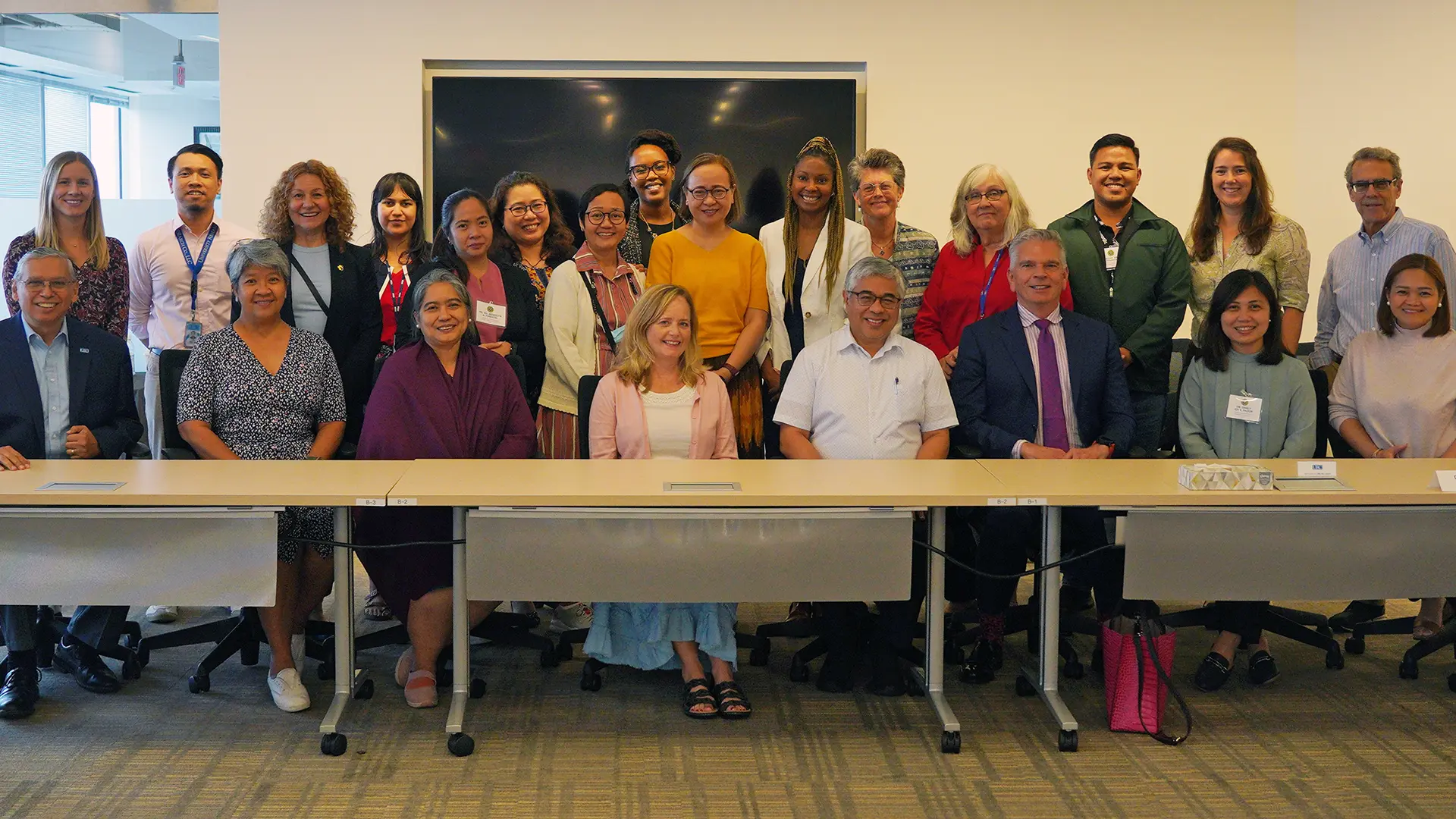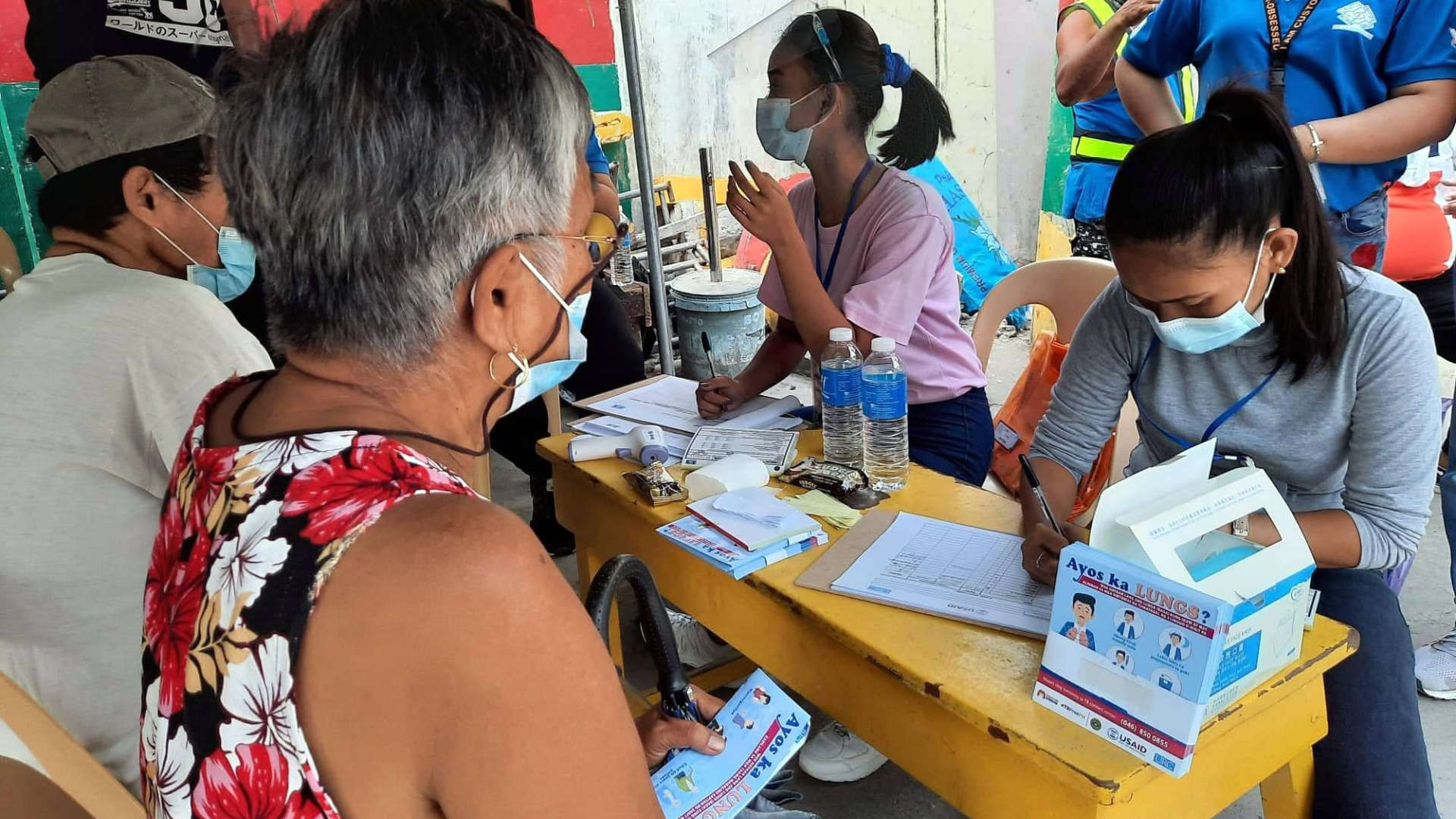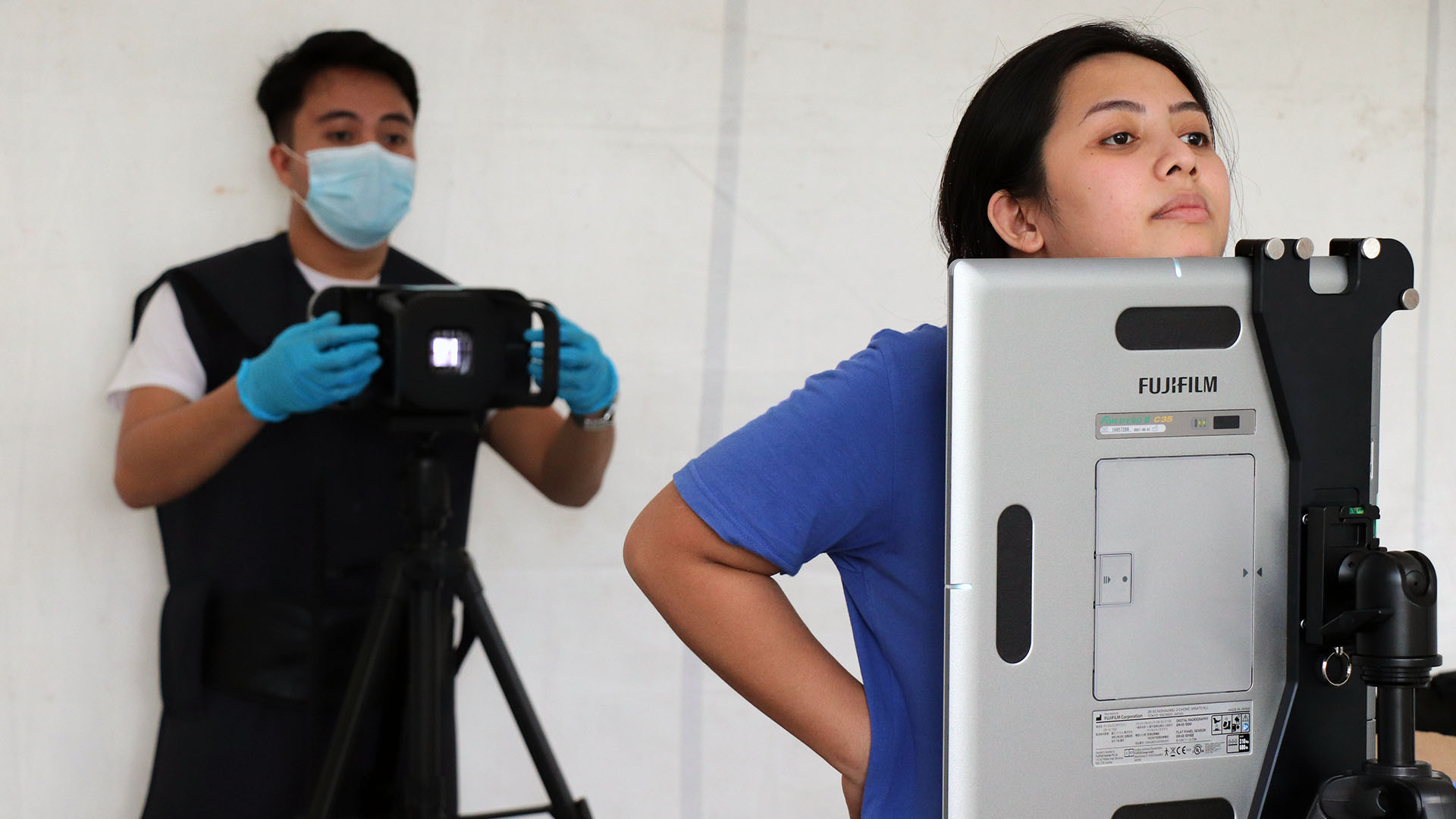URC, with the Health Resources and Services Administration (HRSA) and USAID, recently hosted an eight-person delegation from the Philippines Department of Health (DOH) on a week-long study tour in the Washington, DC area to learn more about best practices in continuous quality improvement (CQI) and how to apply them in the Philippines.
The tour included a morning visit to URC headquarters in Chevy Chase, Md. On Aug. 17, during which URC staff presented lessons URC has learned from more than 40 years of implementing USAID activities focused on quality improvement in health care – particularly ongoing efforts in Jordan and Ghana. URC also is implementing multiple USAID activities in the Philippines.
The DOH delegation was led by Dr. Kenneth Ronquillo, UnderSecretary of Health and leader of the Governance and Organizational Development Office, and included representatives from across the Philippines DOH, including leaders in health workforce development, local health systems, disease control and prevention, health facility development, and more.
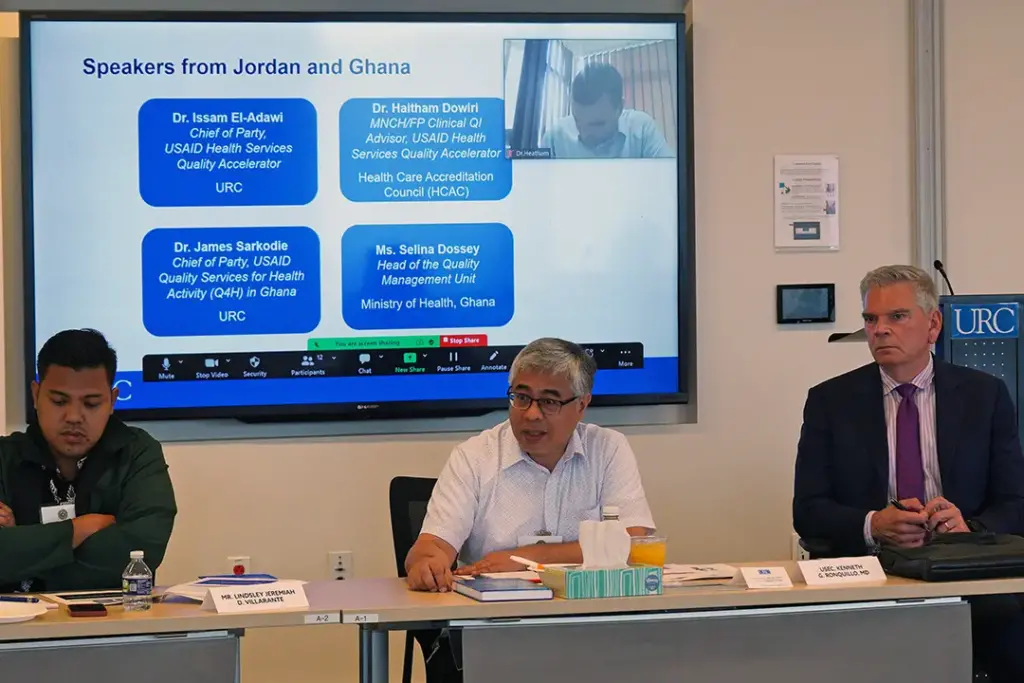
“It’s really created a team of champions for quality who are all on the same page now about what they need to do,” said URC Knowledge Management Director Lani Marquez, who co-hosted the URC event. “And now they are going to work together to try to make that happen.”
The delegation – funded by USAID and HRSA – visited several other sites in the Washington, D.C.-area beginning Aug. 14 to examine CQI best practices and strategies, including:
- HRSA, to learn about its quality improvement efforts in multiple bureaus;
- Kaiser Permanente’s Capitol Hill facility;
- The Whitman-Walker Health Clinic in Washington, DC;
- Unity Health Care in Washington, DC;
- The Johns Hopkins John G. Bartlett Specialty Practice in East Baltimore;
- Facilities run by Choptank Community Health System and Chesapeake Health Care on Maryland’s Eastern Shore; and
- The Headquarters of USAID, the Centers for Medicare & Medicaid Services, and the National Association of Community Health Centers in Washington, D.C.
The Philippines Embassy also held a special reception for the delegation on Aug. 17.
Applying Lessons to the Philippine Context
During each facility visit on this tour, Dr. Shirly Joy R. Pador – Medical Officer IV, Policy and Standards Division, Philippines DOH Health Human Resource Development Bureau – asked herself: how can quality improvement be embedded across the Philippines health workforce, including staff who don’t provide care directly to patients?
The goal, Dr. Pador said, is putting systems in place so the health workforce can focus on doing their jobs to the best of their abilities and that actions toward improving quality become reflexes, not the exception.
“Making the right thing the easiest thing to do is really a key takeaway,” Dr. Pador said. “I feel a lot of motivation to put the systems in place for them.”
For Dr. Ronquillo, head of the visiting delegation, a key challenge is ensuring that everyone at all levels of the health system understands what QI means and their role in making quality happen.
Another challenge for QI in the Philippines is the relatively low level of resources supporting the health system compared to the U.S., said Zhamir Umag, a URC Technical Advisor to the Philippines DOH. “So we really have to be strategic and … prioritize what we want to do and adapt in the Philippines.”
Here to Provide Continuous Support
Marquez was impressed by the delegates’ thoughtfulness and the questions they asked during the tour.
Diana Chamrad, Ph.D., URC Senior Technical Advisor, accompanied the delegation throughout the week to a wide spectrum of health care sites. “While the health centers varied in the degree of similarity to the health care system in the Philippines, the delegates were adept at honing in on what lessons in quality they could learn from each site and apply to their work back home,” Chamrad said.
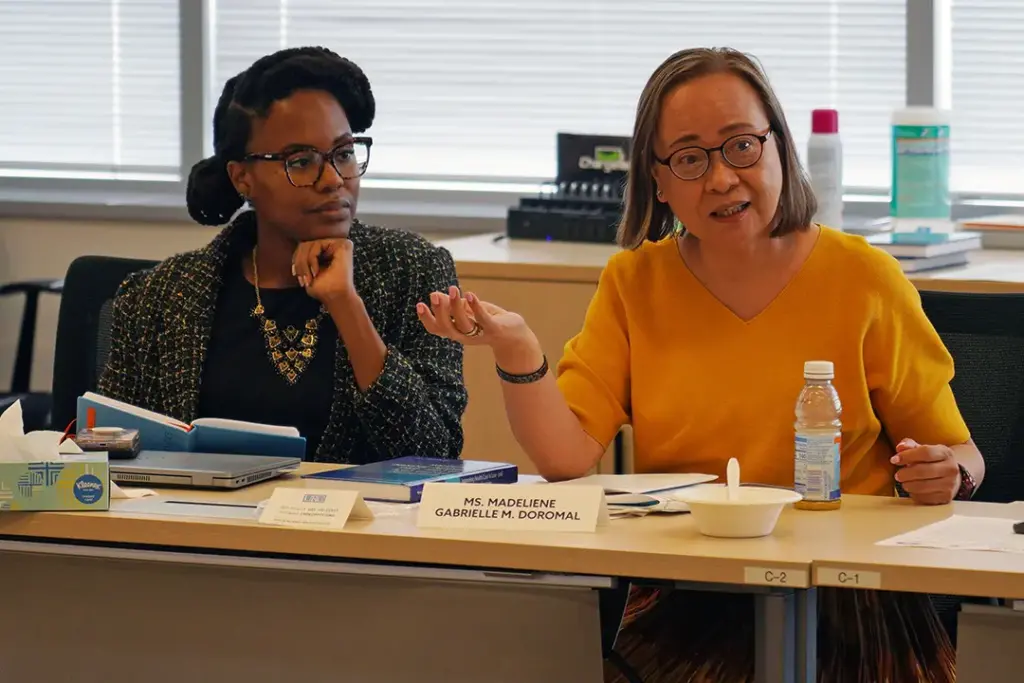
After the URC event, Marquez said that a key feature of this study tour was the conversations available to the delegates about practical issues, such as what should be included in a national quality strategy. This kind of advice is available in books, but that’s not the same as talking to people who’ve led these efforts.
“We’re excited for them, excited for the journey they are going to be on, and hopeful that URC can continue to support them on that journey,” Marquez said.
Read more about URC’s history with QI in this blog by Marquez.
